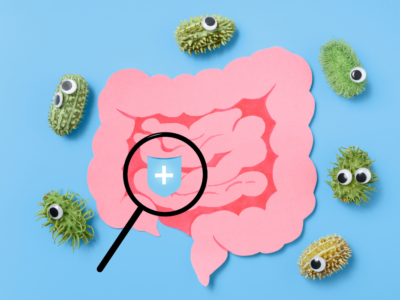With cold and flu season just around the corner, it is more important than ever to make sure we are exercising all of the necessary precautions. In normal times, it is common for kids to have six colds per year, so before you go down that rabbit hole or head to Google to diagnose your little one, let’s dive into what symptoms to look out for and what steps to take if your babe is showing them.
What’s the difference between a cold and flu?
To start, the flu is typically much more severe than a common cold and symptoms will be worse. Additionally there can be complications from the flu, unlike colds which usually resolve without serious complications.
With colds, you (or your babe) will typically have:
- Nasal congestion
- Runny nose
- Sore throat which may develop into a mild cough after a couple days
- May or may not be fever, and if there is, it is typically low grade and mild
- Usually the symptoms of a cold resolve over a few days
With the flu, you (or your babe) will typically have:
- Fever (usually over 101℉)
- Sore throat
- Headache
- Muscle aches
- Fatigue
- Cough
- May have nasal congestion although this is more common with a cold.
Overall, someone with the flu just feels awful. The symptoms are more severe and can last 2-5 days, but you can feel fatigued for even weeks. The flu, as mentioned, can also lead to complications such as pneumonia.
Colds and flus are contagious in the first few days so it’s important to avoid close contact (the best you can) with anyone who is sick. Additionally, some viruses, like the flu for example can be contagious a day before there are any symptoms or after they are feeling better. For example, children may spread the virus longer than adults, even 5-7 days out!
And then how do you know if you have COVID?
COVID can be difficult to distinguish as there can be plenty of overlap with a cold, flu or even allergies. COVID can present with a wide range of symptoms, ranging from mild to more severe. The symptoms can really vary and look different in different people. Some we know are asymptomatic without symptoms, while some present with mild symptoms, cold symptoms, or some flu symptoms, while others can get very sick and more severe presentations.
With COVID, you (or your babe) may have:
- Fever
- Runny nose
- Cough
- Shortness of breath
- Loss of taste and/or smell
- Sore throat
- Abdominal pain
- Nausea
- Vomiting
- Diarrhea
*Reminder: This list of symptoms is not exhaustive. Your child might experience other symptoms and even if they have minimal symptoms it could be COVID.
As a parent, it is important to keep your child home if they are showing any symptoms at all, even if you suspect it may just be allergies or a stuffy nose. In this situation, we all must use caution to do our part in preventing the spread of COVID. Keep them home until they are feeling better and fever free for 24 hours.
If your child is sick, be sure to be in touch with your pediatrician as they can guide you in the best course of action for your little one (like staying home from school, being seen by a doctor, getting a COVID test etc.).
You should also have your child stay home if they have had contact with someone with COVID (exposure of less than 6 feet for more than 15 minutes), even if they don’t have symptoms.
If your child has been in-person for school, you should familiarize yourself with the school’s plans if there is a confirmed case of COVID or if your child’s cohort at school is exposed. There needs to be clear communication about when your child should be tested and how the school approaches testing at large.
Important Prevention Measures to Take:
- Wear masks and always have clean masks on hand
- Good hand washing
- Social distancing
- Get plenty of rest and ensure enough sleep
- Ensure a good diet
- Get a flu vaccine



